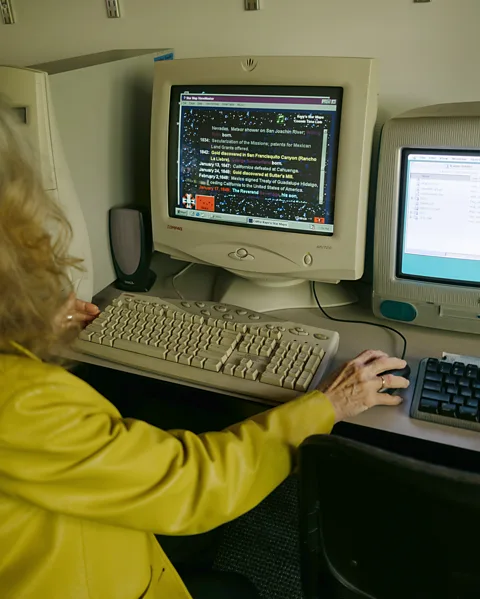Still Operating After All Those Years: The Enduring Use of Old Windows Machines
As technology continues to evolve, a surprising number of individuals find themselves reliant on outdated software and hardware, often from as long ago as the late 1990s. This paradoxical phenomenon sheds light on how some systems, initially considered obsolete, linger on in everyday life—particularly in corporate and government settings.
Windows XP: A Blast from the Past
Earlier this year, while heading to a medical appointment in New York City, an unusual sight greeted me inside the elevator: it was running on Windows XP, an operating system that debuted nearly twenty-five years ago. This moment reminded me how deeply entrenched Microsoft has become in our digital infrastructure since its founding in 1975. Despite venturing into advanced technology realms like AI, evidence of Microsoft’s legacy is evident in the lingering presence of its older software.
Modern businesses still tethered to outdated Windows versions illustrate the immense reliance on these older systems. Lee Vinsel, an associate professor at Virginia Tech, succinctly states, “Windows is the ultimate infrastructure. It’s why Bill Gates is so rich.” He suggests that the widespread use of older versions of Windows is a testament to Microsoft’s significant impact on our operational frameworks today.
Legacy Systems in Everyday Life
Even in sectors where advanced technology thrives, many may not realize that they are interacting with systems running on outdated Windows platforms. Elvis Montiero, an ATM technician based in Newark, points out that many ATMs still operate on Windows XP or even Windows NT from 1993. The high costs and regulatory hurdles associated with upgrading these machines often lead to continued dependence on these early operating systems.
This trend isn’t confined to banking. In Germany, a job posting for an IT systems administrator at Deutsche Bahn highlighted the need for expertise in Windows 3.11, a relic from 1992, and MS-DOS from 1981—contemporary travel in Germany’s rail system still pivots on antiquated technology.
The Struggles of Legacy Technology
The dependency on old systems often means individuals must grapple with frustrations tied to slow performance and obsolescence. John Watts, who manages commercial photography printers reliant on Windows 2000, shares his experience of agonizing wait times to log in to aging computers. Upgrading would be financially prohibitive, leading him to work with systems he describes as “boat anchors.”
Meanwhile, Scott Carlson, a Los Angeles woodworker, reveals that his CNC machines run on Windows XP because their age gives them unmatched reliability, despite their operating systems becoming increasingly challenging to manage. “It was practically a brick,” he recalls, reflecting on the issues that arise with aging technology.
Challenges in Healthcare
Organizations such as the U.S. Department of Veterans Affairs face similar hurdles. Psychiatrist Eric Zabriskie recounts the exasperation of waiting up to fifteen minutes for a computer running a government suite from 1997 to start. He describes the frustrations of navigating outdated systems that feel reminiscent of the late 1990s in a world that’s moved on.
Comparing New and Old
While some passively use legacy systems, others actively seek to preserve them for their historical and functional significance. Dene Grigar, who heads the Electronic Literature Lab at Washington State University, maintains a collection of vintage computers. She highlights the importance of original technology in experiencing early digital artworks fully, underscoring the artistic value of preserving the past.
Continued Relevance
Microsoft’s extensive support for software combined with user loyalty explains the enduring presence of these systems. M. Scott Ford, a software developer focusing on legacy systems, remarks on how Microsoft’s strategy of allowing organizations to utilize existing hardware while pursuing them for software licenses has fostered a delay in technological updates.
The Future of Legacy Technology
As we navigate a rapidly evolving technological landscape, the fact that government and private institutions continue to rely on outdated systems signals a broader trend of deferred maintenance in technology. While companies might push for innovation, our reliance on legacy platforms provides a window onto the past and serves as a poignant reminder of where we’ve been.
| Device Type | Operating System | Year Released |
|---|---|---|
| ATM | Windows XP | 2001 |
| Commercial Printer | Windows 2000 | 2000 |
| Train Display System | Windows 3.11 | 1992 |
| Health Records System | VistA | 1985 |




